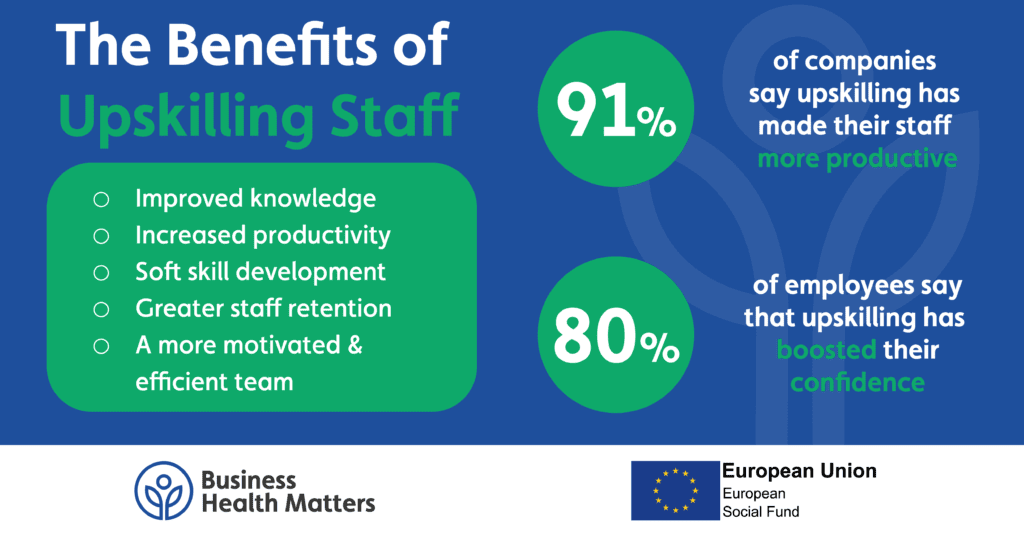Empower Your Workforce: Strategic Upskilling Initiatives


Empowering Growth: Navigating Employee Upskilling Programs
In the ever-evolving landscape of the workplace, the concept of upskilling has gained prominence as businesses recognize the pivotal role of continuous learning in employee development and organizational success. Employee upskilling programs are strategic initiatives designed to enhance the skills and capabilities of the workforce, fostering a culture of growth and adaptability.
The Imperative of Continuous Learning
In a fast-paced and dynamic business environment, the skills that employees possess can quickly become outdated. Employee upskilling programs address this challenge by emphasizing the importance of continuous learning. These initiatives recognize that fostering a culture of ongoing education is key to keeping employees abreast of industry trends and technological advancements.
Strategic Alignment with Organizational Goals
Effective upskilling programs are strategically aligned with organizational goals. They identify the skills and competencies required to drive business success. Whether it’s adapting to new technologies, improving customer service, or enhancing leadership capabilities, upskilling programs are tailored to meet the specific needs and objectives of the organization.
Technological Advancements and Digital Literacy
In the era of digital transformation, employee upskilling programs play a critical role in enhancing digital literacy. From mastering new software tools to understanding data analytics, employees are equipped with the skills necessary to navigate the digital landscape. This not only boosts individual capabilities but also positions the organization to thrive in the digital era.
Nurturing a Culture of Adaptability
Upskilling initiatives contribute to fostering a culture of adaptability within the organization. When employees are encouraged to embrace new skills and knowledge, they become more resilient in the face of change. This adaptability is invaluable in navigating disruptions, staying competitive, and ensuring the long-term success of the business.
Tailored Learning Paths for Individual Growth
Employee upskilling programs recognize the diverse learning needs of individuals within the workforce. They offer tailored learning paths that allow employees to develop expertise in areas relevant to their roles and career aspirations. This personalized approach enhances engagement and ensures that the acquired skills directly contribute to professional growth.
Cross-Functional Collaboration and Skill Transfer
Upskilling programs facilitate cross-functional collaboration by providing opportunities for employees to learn from colleagues in different departments. This not only enriches individual skill sets but also promotes a culture of knowledge sharing and collaboration. The transfer of skills across teams contributes to a more versatile and interconnected workforce.
Measuring Impact and Return on Investment
Quantifying the impact of upskilling programs is essential for organizations seeking to measure their return on investment. Effective assessment metrics, such as improved performance metrics, increased employee satisfaction, and enhanced innovation, help gauge the success of upskilling initiatives. This data-driven approach informs future strategies and ensures ongoing program efficacy.
Addressing Future Skill Gaps
Employee upskilling programs are proactive measures to address future skill gaps. By identifying emerging trends and anticipating industry changes, organizations can prepare their workforce to meet future demands. This strategic foresight not only positions the business for success but also contributes to employee job satisfaction and retention.
Inclusive and Accessible Learning Opportunities
A cornerstone of successful upskilling programs is inclusivity. These initiatives should be accessible to all employees, regardless of their position within the organization. This inclusivity fosters a sense of equality and ensures that everyone has the opportunity to enhance their skills, contributing to a more empowered and engaged workforce.
Continuous Evolution in Upskilling Strategies
In conclusion, employee upskilling programs are catalysts for organizational growth and employee empowerment. The dynamic nature of the business landscape necessitates continuous evolution in upskilling strategies. To explore more about Employee Upskilling Programs and their transformative impact, visit activolaboral.com and embark on a journey of continuous learning and professional development.





